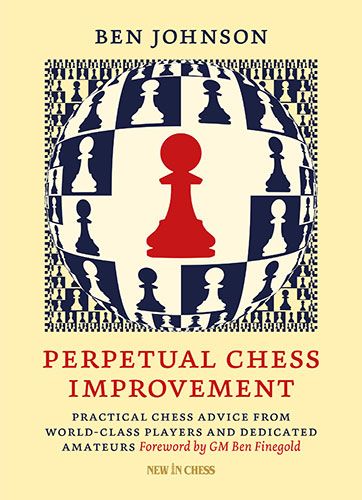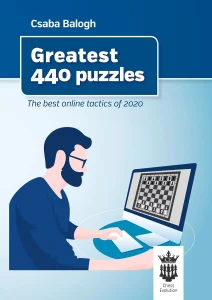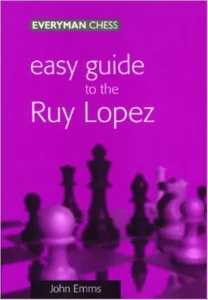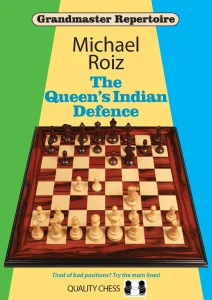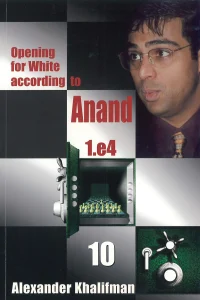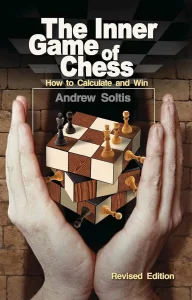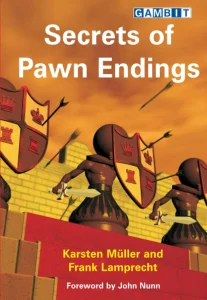If I had to single out one person who helped my chess the most throughout the last 8 years, it would be Ben Johnson. Ben runs the called Perpetual Chess Podcast, where he interviews strong players, authors, chess influencers, and adult improvers. Ben made it possible for improving players like myself to get a glimpse of how others approach the greatest question in chess: How do I improve? Hearing how strong players think, approach chess training, deal with plateaus, frustration, how they tackle their biggest weaknesses or approach calculation during tournament games wasn’t possible before Ben started his project almost 10 years ago unless you bought books or got lucky enough to find a useful YouTube video.
The Perpetual Chess Podcast provided me, and many others, a way to get that information. After years of interviewing the most influential people in the chess world, Ben has assembled a book that captures the essence of those hundreds of conversations. Perpetual Chess Improvement is the “best off” of the podcast. It’s actually more than that. It’s a collection of answers to chess’ most frequently asked questions. The FAQ section of chess. If you are among thousands trying to improve at chess, then Ben’s words may resonate with you: “The only thing that enthusiastic amateurs like to do more than work on their chess games is to talk about improving their chess games.”
Perpetual Chess Improvement is an easy read. It’s not your typical chess book which will take 30 minutes per page. It does contain diagrams, but they are few, and mostly easy to solve without having to set up a real board. The book instead focuses on thinking processes, training methods, ways to improve your play on and off the board, and how to solve problems every chess player faces.
The book is divided into five parts. Part one, The four pillars of chess improvement is in a way a statistical analysis of what strong players think you should do to get better. Having something like that is of immense value for improving players. Part two focuses on different aspects of play; openings, endgames, tactics, and how to approach each effectively. Part three is my favorite. It goes deep into questions I ask myself every day such as “Have I reached a plateau? How do I get past it?”. Part four provides numerous tools for improvement, another important topic of 21st century chess almost nothing has been written about. Ben covers online and offline resources including books, courses, videos, engines and neural networks and more.
I swallowed the book in a single day. Partly because it felt refreshing to read a chess book like an actual book, and partly because it felt like being given access to a massive vault of chess knowledge and advice that hides the answers I need to make progress. Reading Perpetual Chess Improvement made me feel better about my chess. It made my thoughts on training, playing, and everything chess related more organized. New ideas and plans kept coming, and I found myself completely reorganizing my training schedule in the days that followed my reading the book.
If you haven’t yet, listen to the Perpetual Chess Podcast. If you want a shortcut to the key advice collected by asking strong players, coaches and authors the chess FAQ, read Perpetual Chess Improvement.

